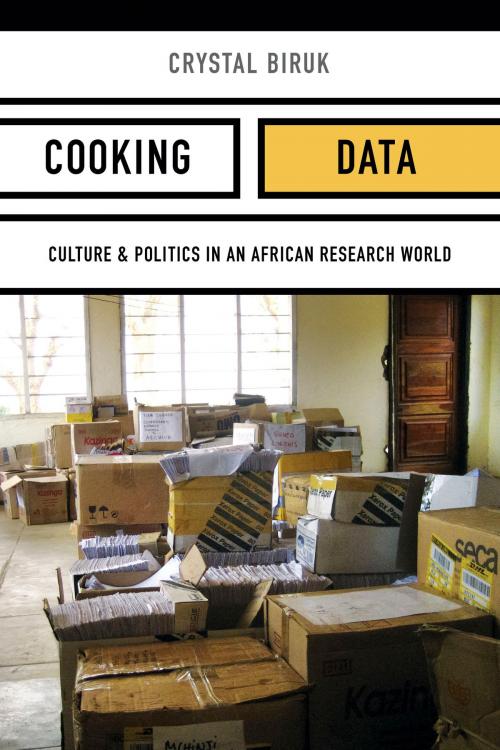Cooking Data
Culture and Politics in an African Research World
Nonfiction, Health & Well Being, Medical, Reference, Public Health, History, Africa, Social & Cultural Studies, Social Science, Anthropology| Author: | Crystal Biruk | ISBN: | 9780822371823 |
| Publisher: | Duke University Press | Publication: | March 15, 2018 |
| Imprint: | Duke University Press Books | Language: | English |
| Author: | Crystal Biruk |
| ISBN: | 9780822371823 |
| Publisher: | Duke University Press |
| Publication: | March 15, 2018 |
| Imprint: | Duke University Press Books |
| Language: | English |
In Cooking Data Crystal Biruk offers an ethnographic account of research into the demographics of HIV and AIDS in Malawi to rethink the production of quantitative health data. While research practices are often understood within a clean/dirty binary, Biruk shows that data are never clean; rather, they are always “cooked” during their production and inevitably entangled with the lives of those who produce them. Examining how the relationships among fieldworkers, supervisors, respondents, and foreign demographers shape data, Biruk examines the ways in which units of information—such as survey questions and numbers written onto questionnaires by fieldworkers—acquire value as statistics that go on to shape national AIDS policy. Her approach illustrates how on-the-ground dynamics and research cultures mediate the production of global health statistics in ways that impact local economies and formulations of power and expertise.
In Cooking Data Crystal Biruk offers an ethnographic account of research into the demographics of HIV and AIDS in Malawi to rethink the production of quantitative health data. While research practices are often understood within a clean/dirty binary, Biruk shows that data are never clean; rather, they are always “cooked” during their production and inevitably entangled with the lives of those who produce them. Examining how the relationships among fieldworkers, supervisors, respondents, and foreign demographers shape data, Biruk examines the ways in which units of information—such as survey questions and numbers written onto questionnaires by fieldworkers—acquire value as statistics that go on to shape national AIDS policy. Her approach illustrates how on-the-ground dynamics and research cultures mediate the production of global health statistics in ways that impact local economies and formulations of power and expertise.















